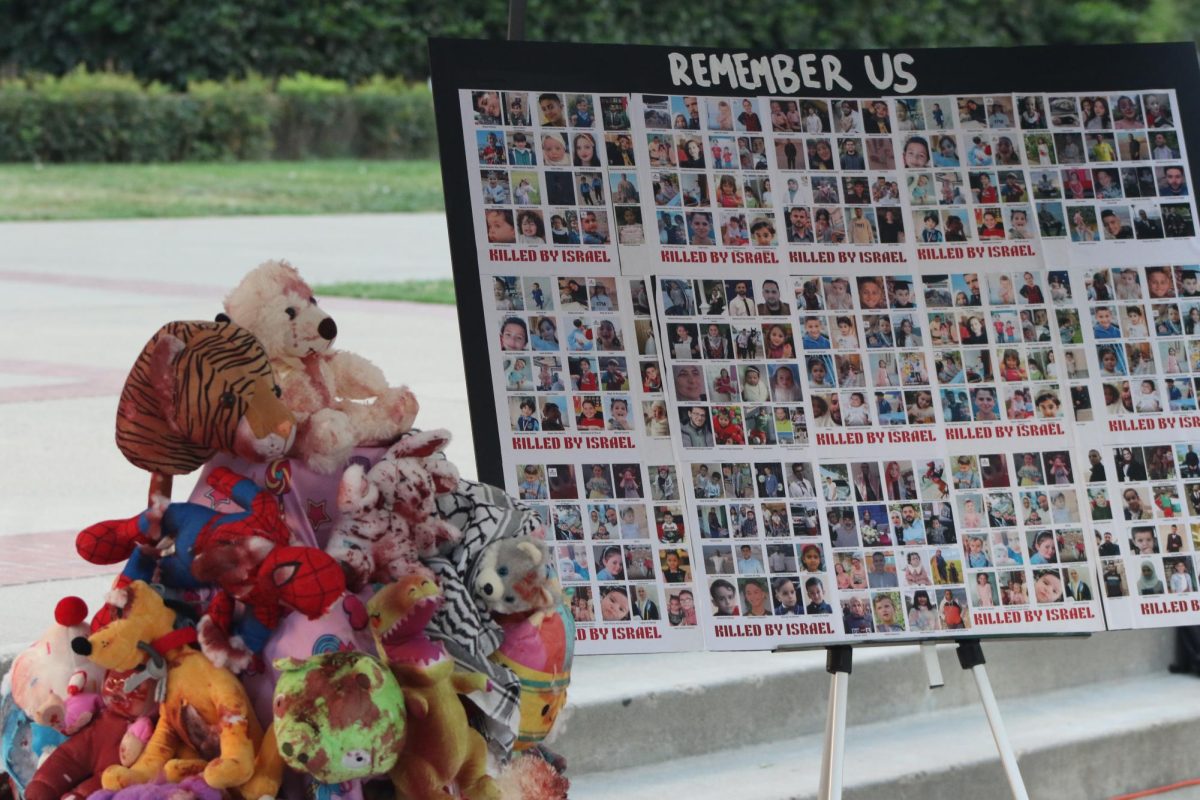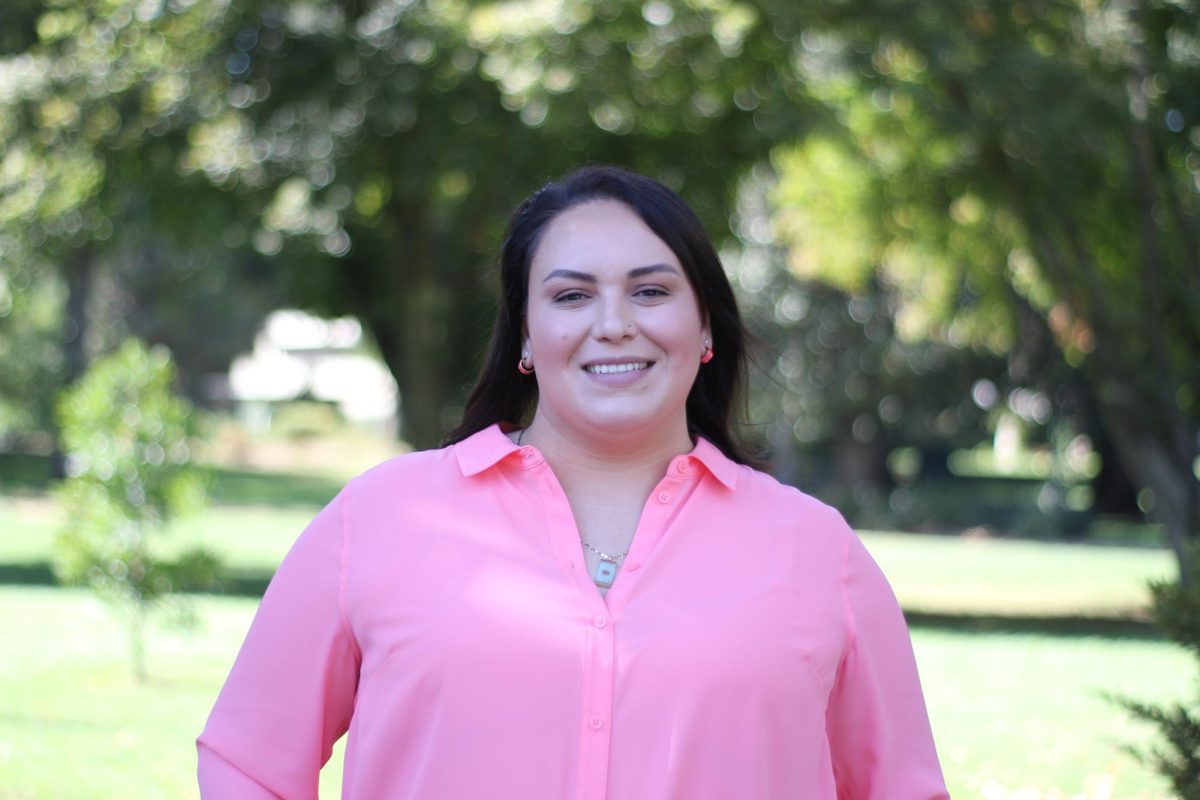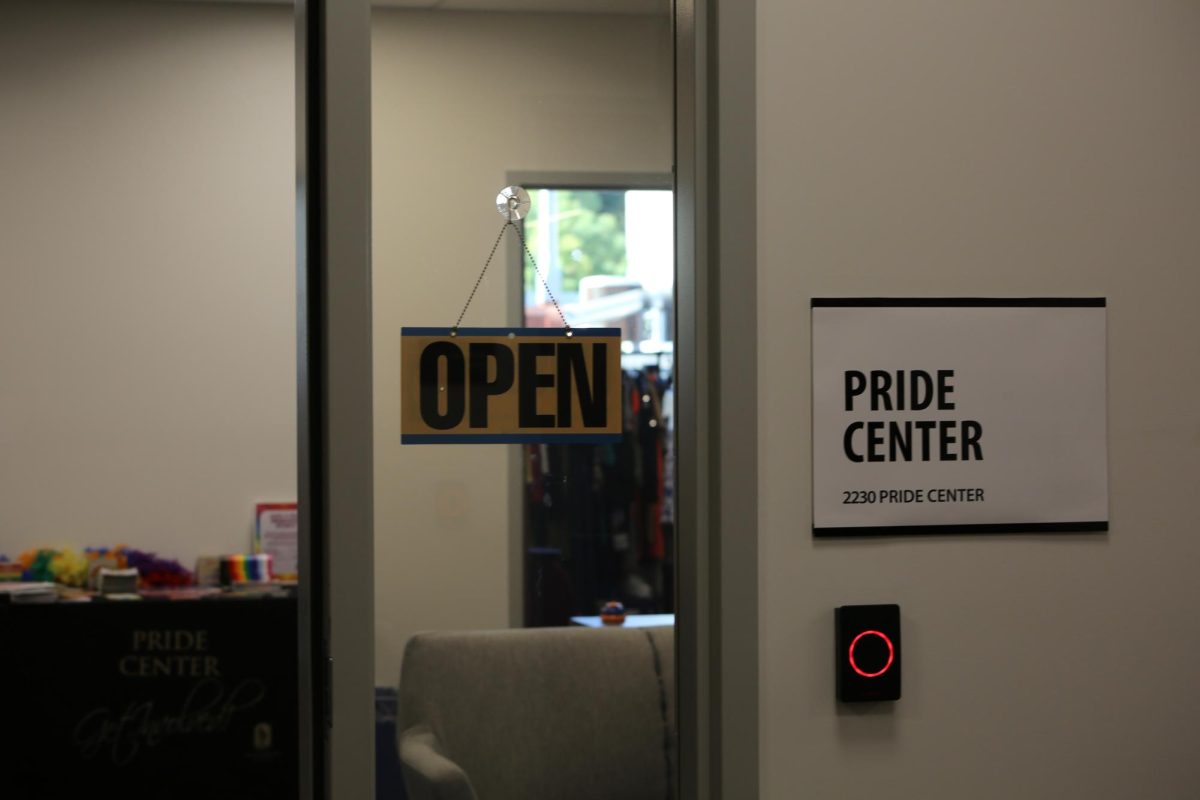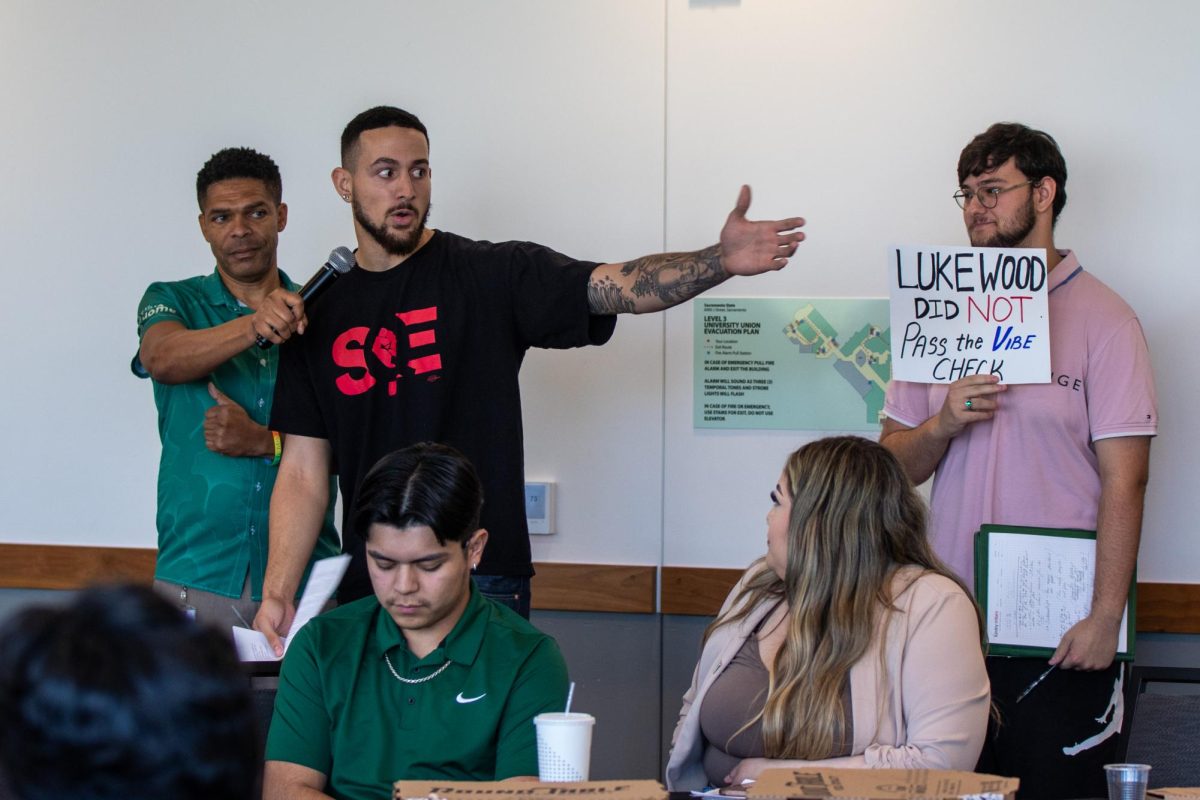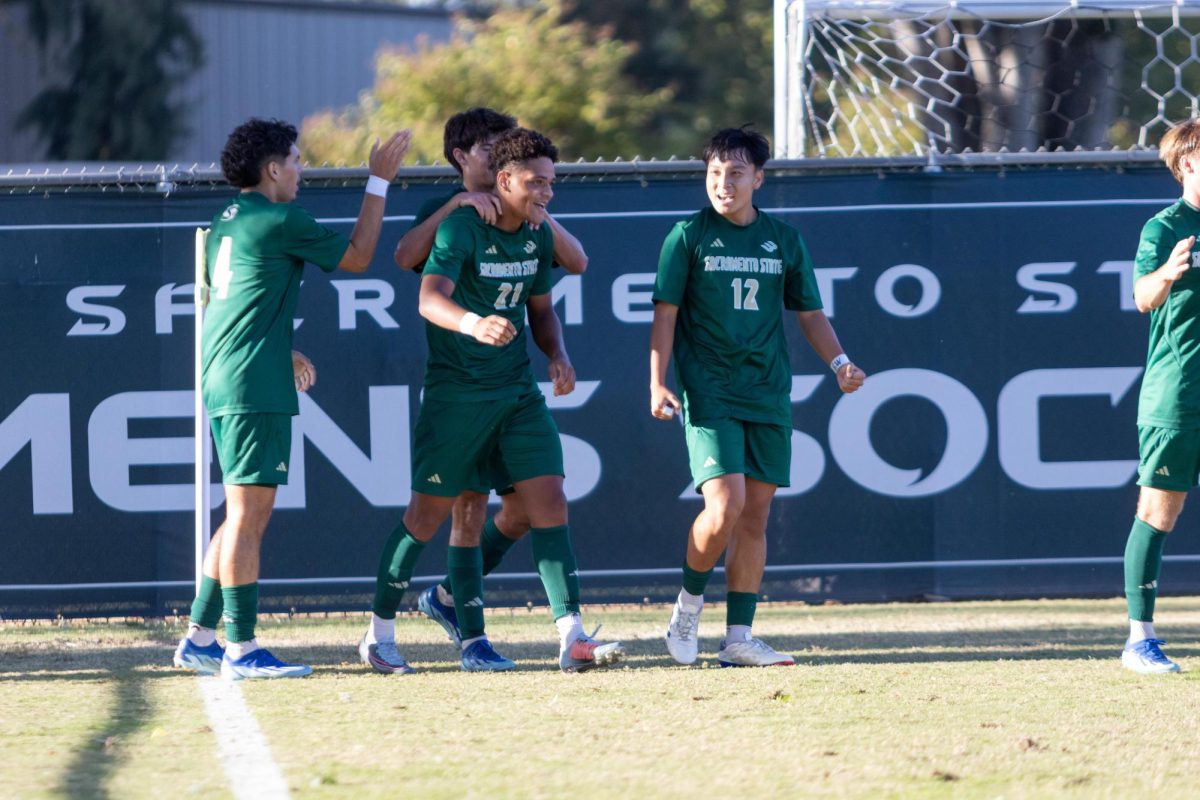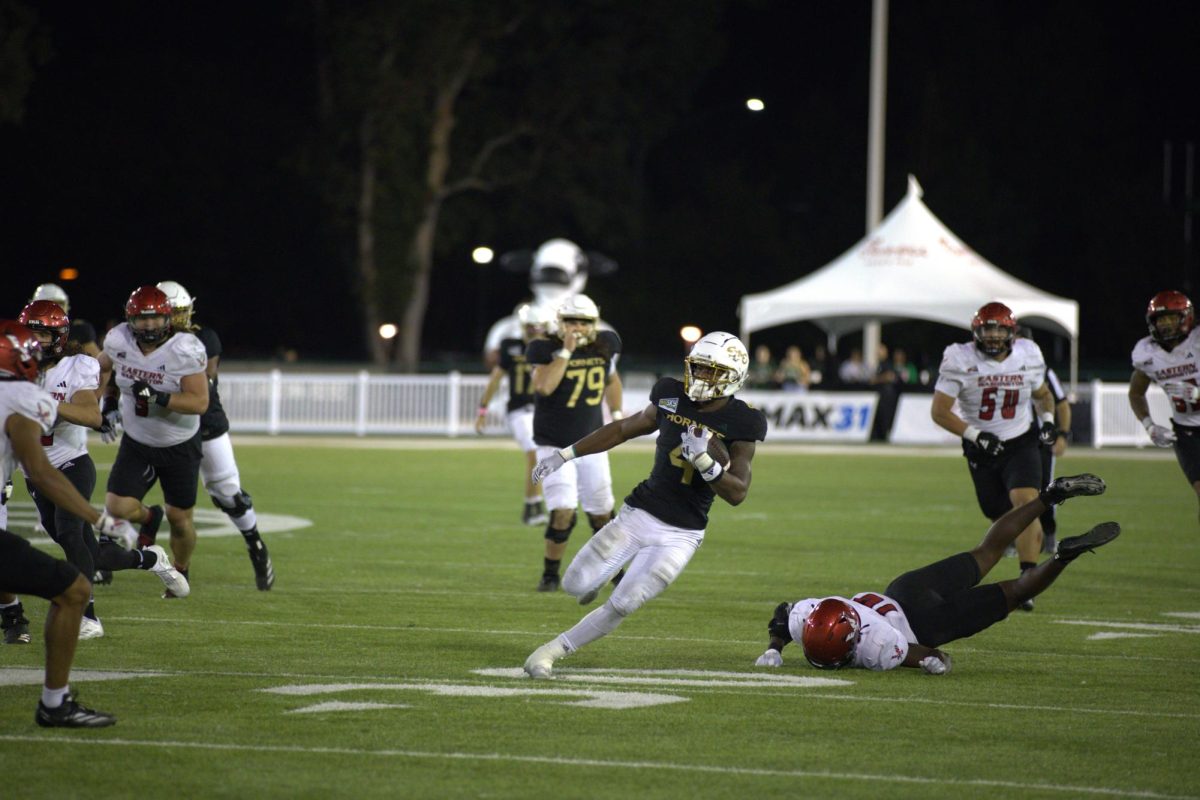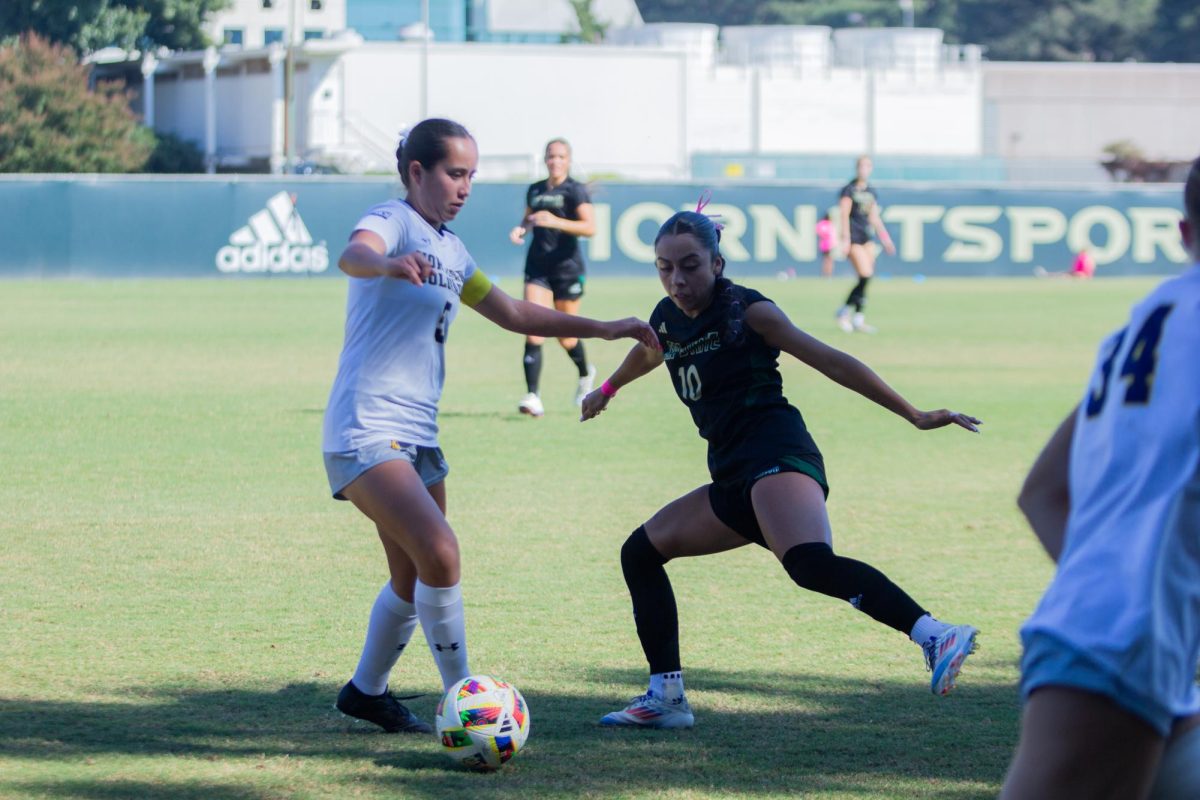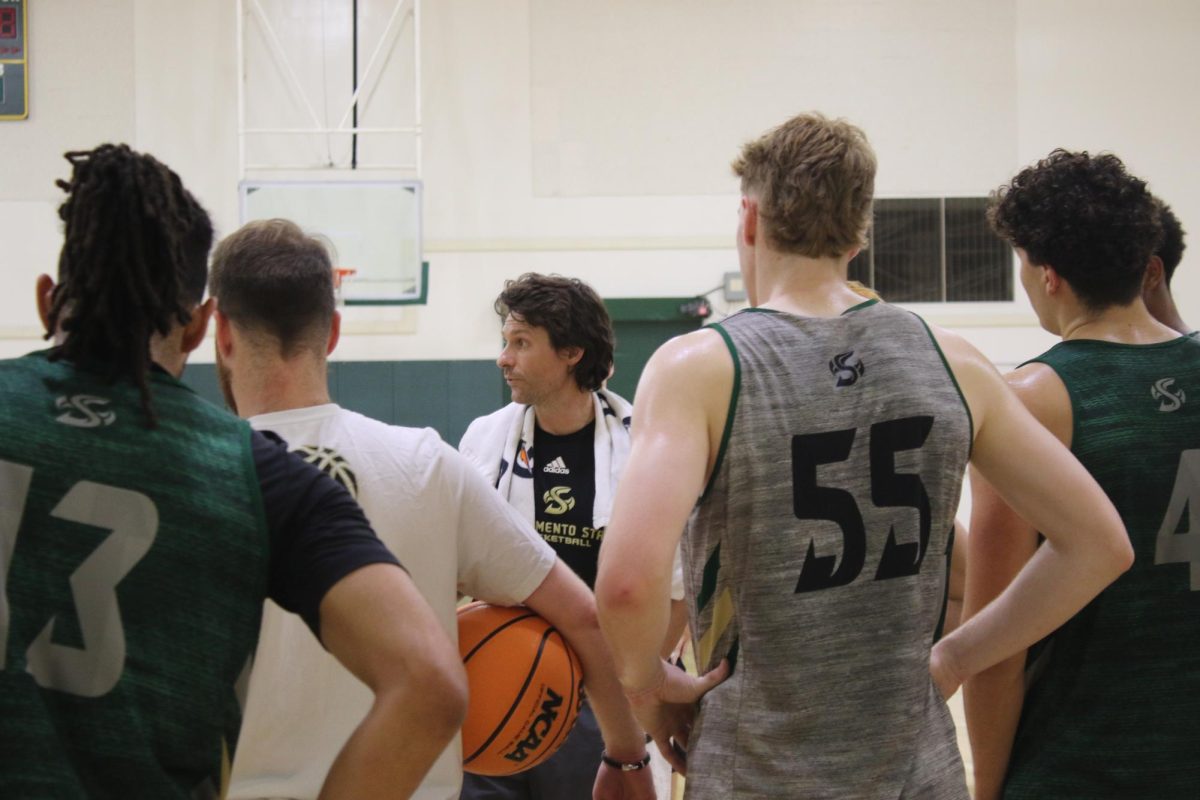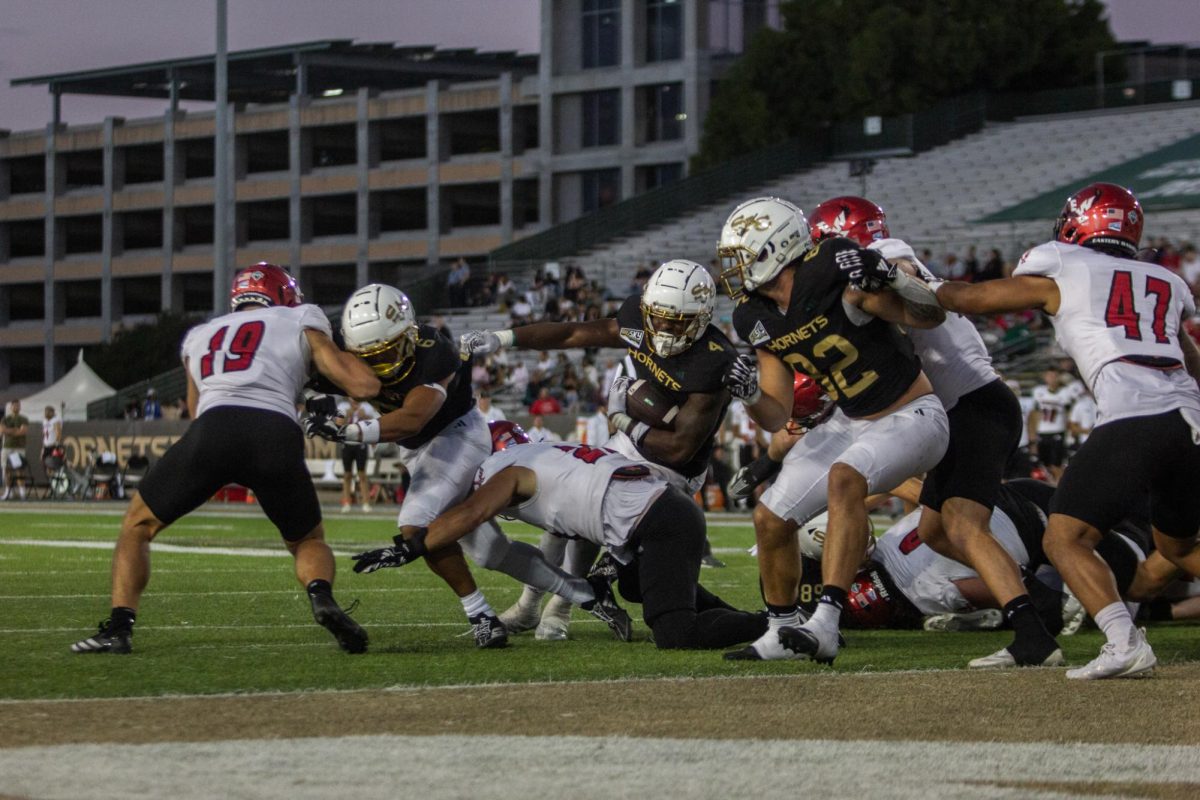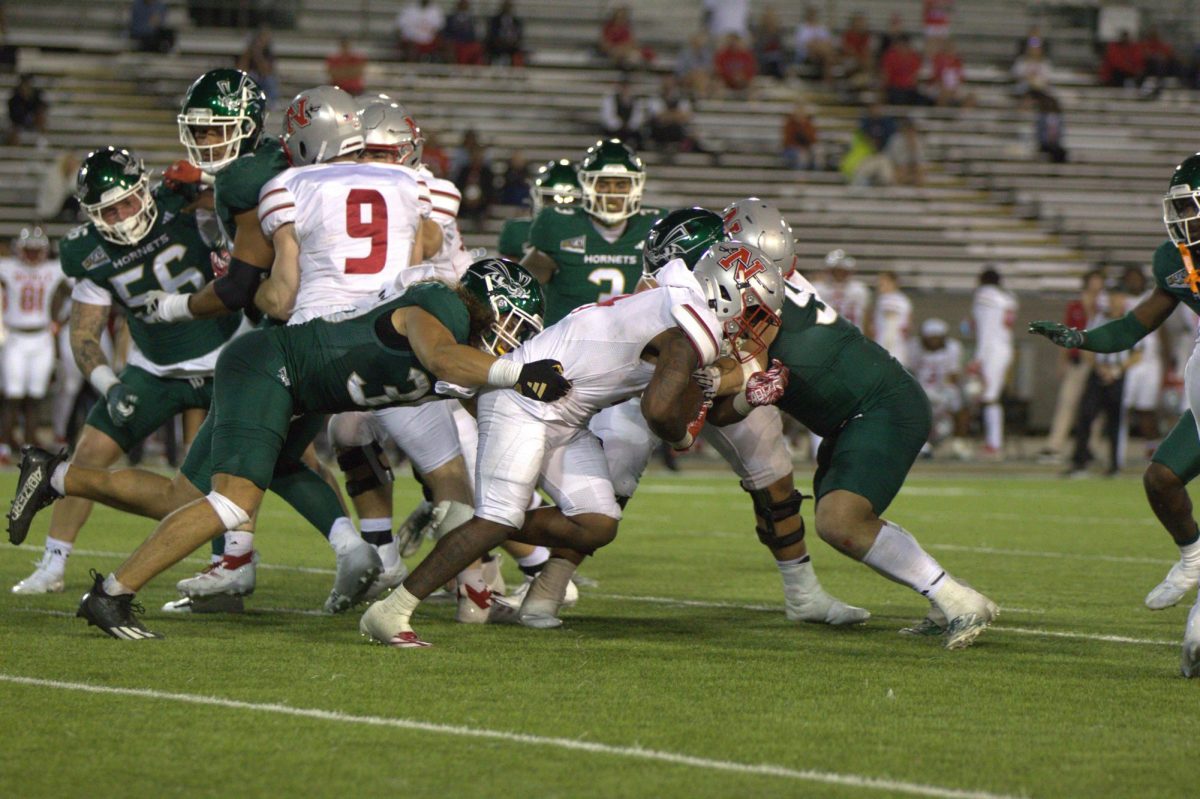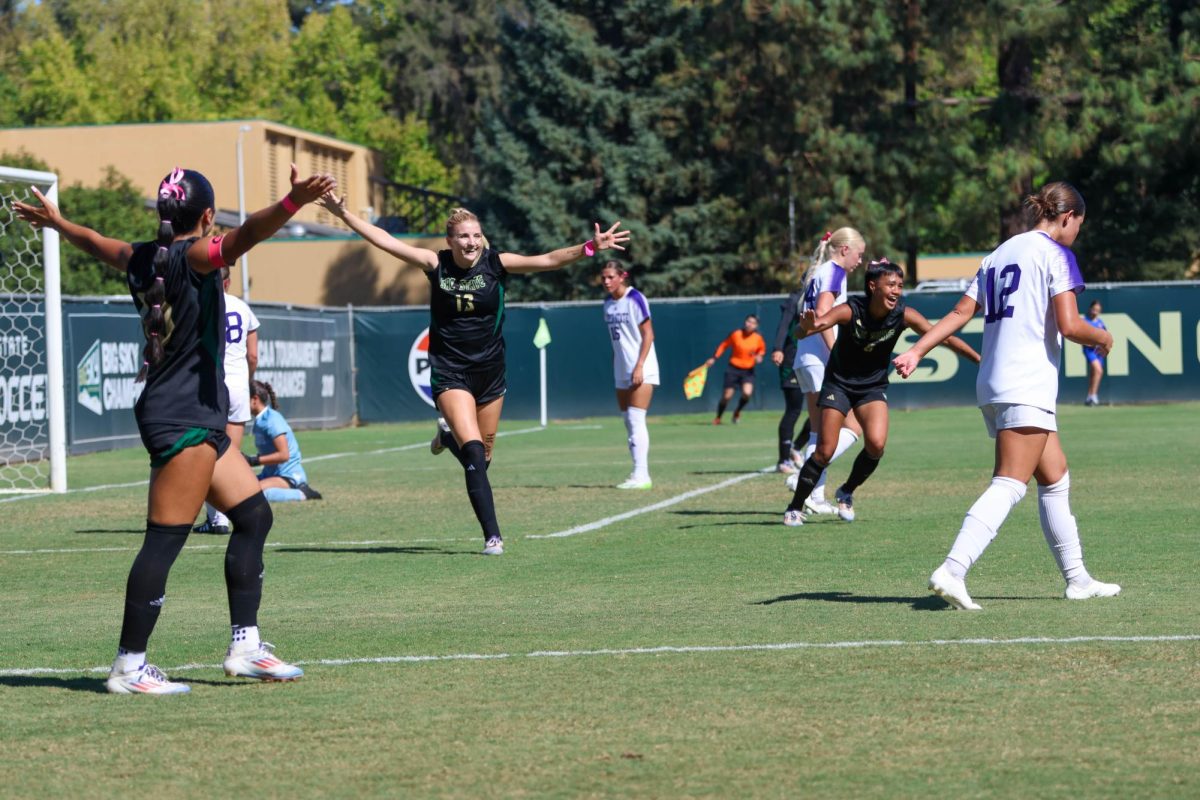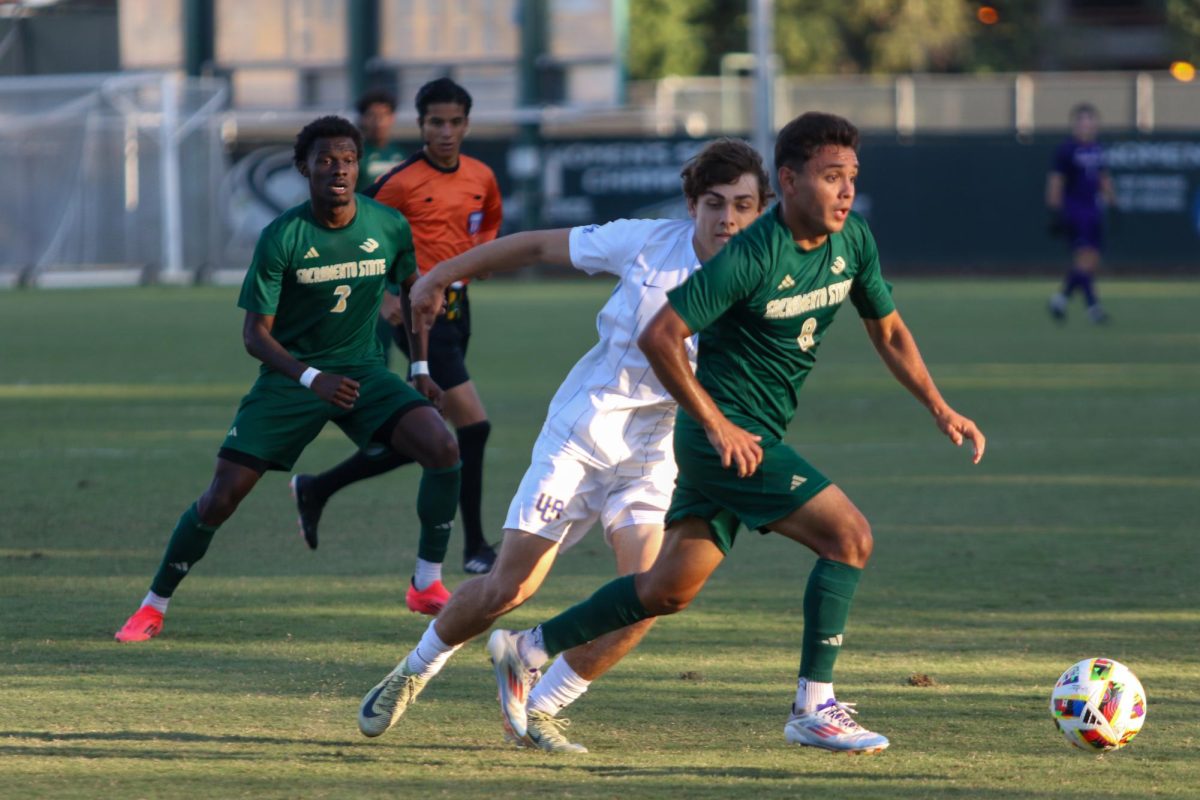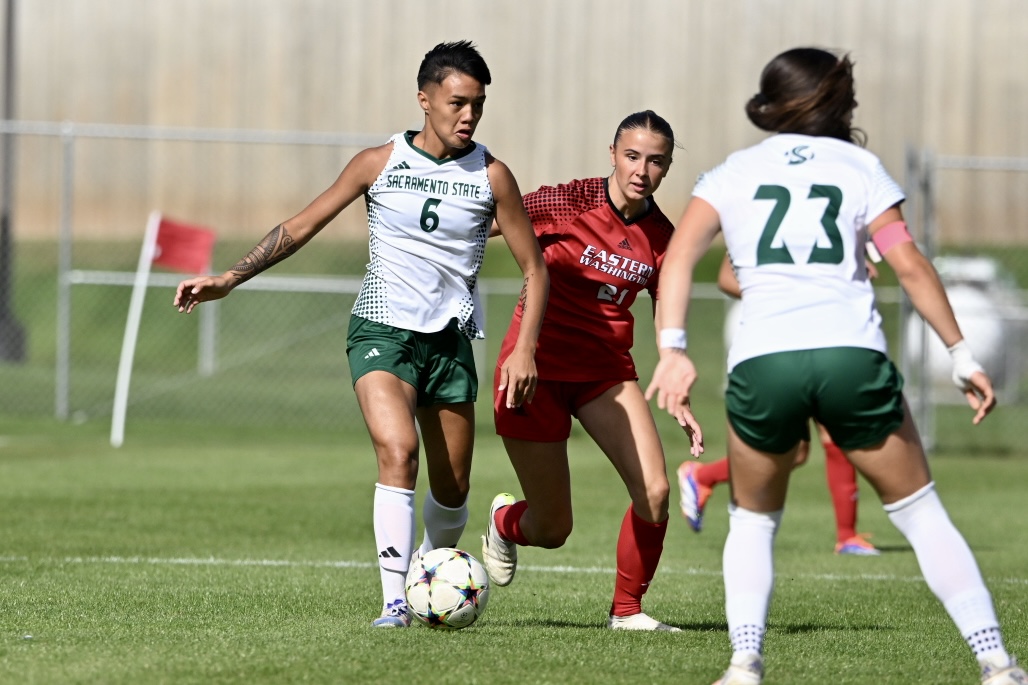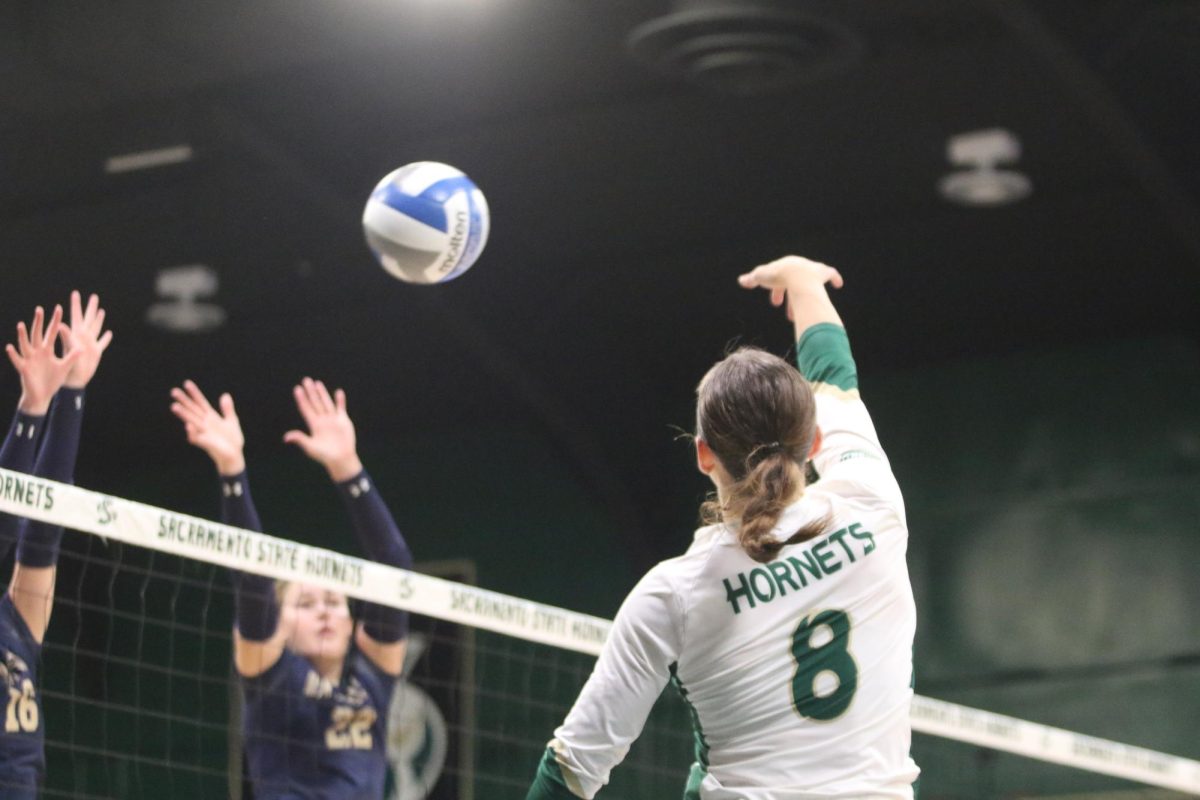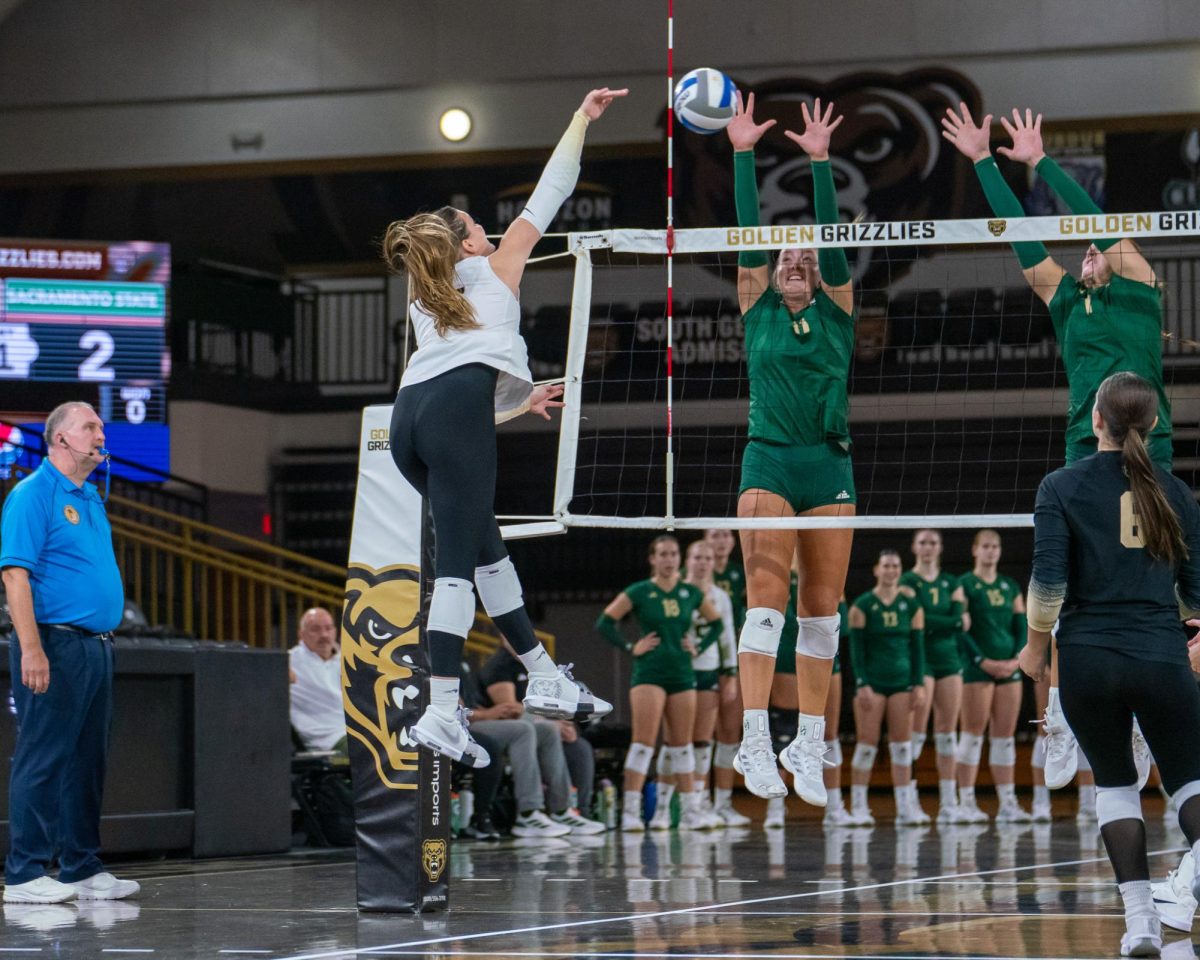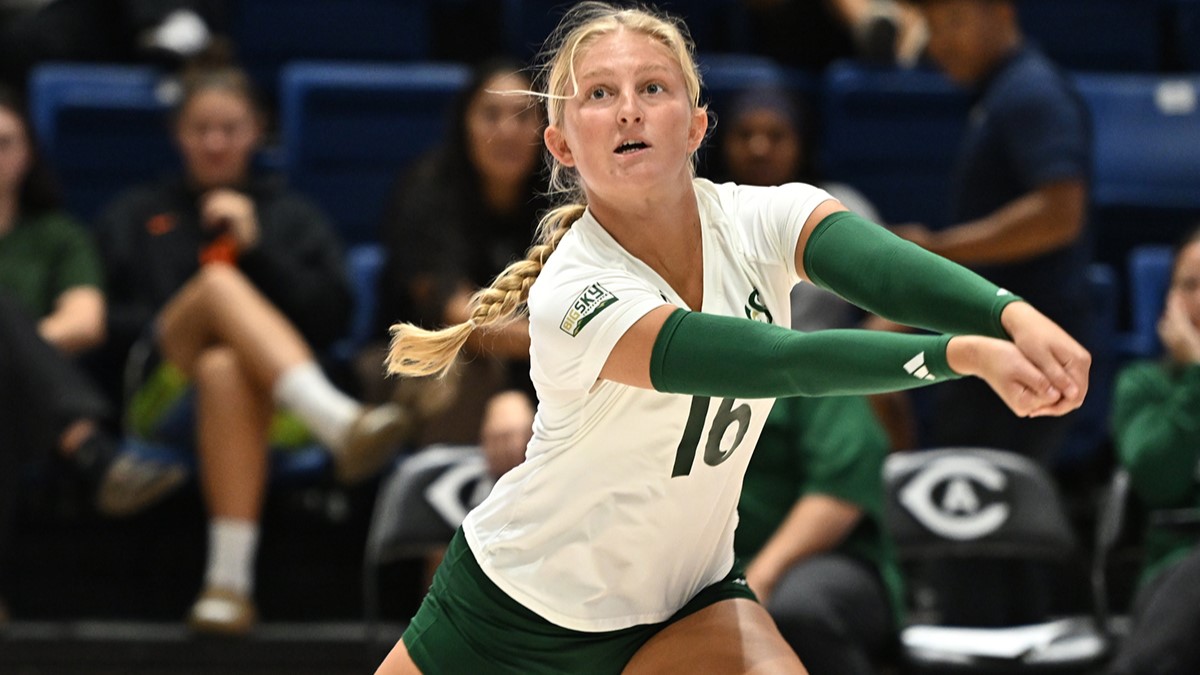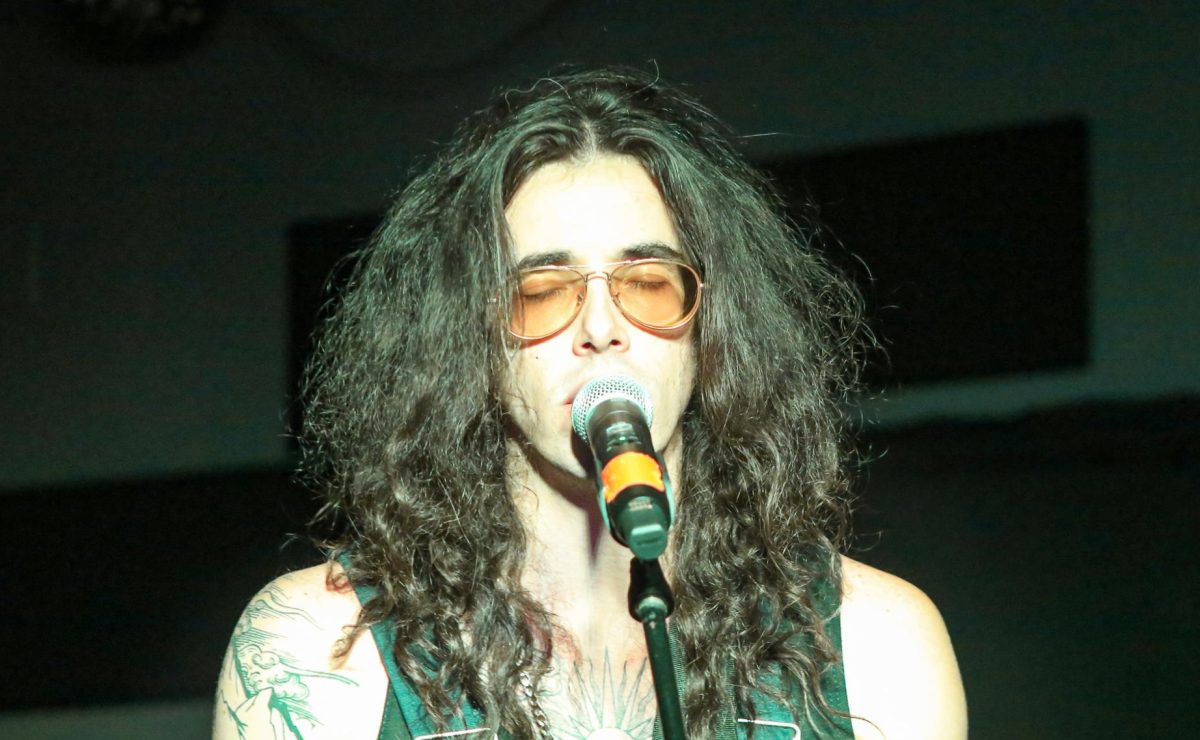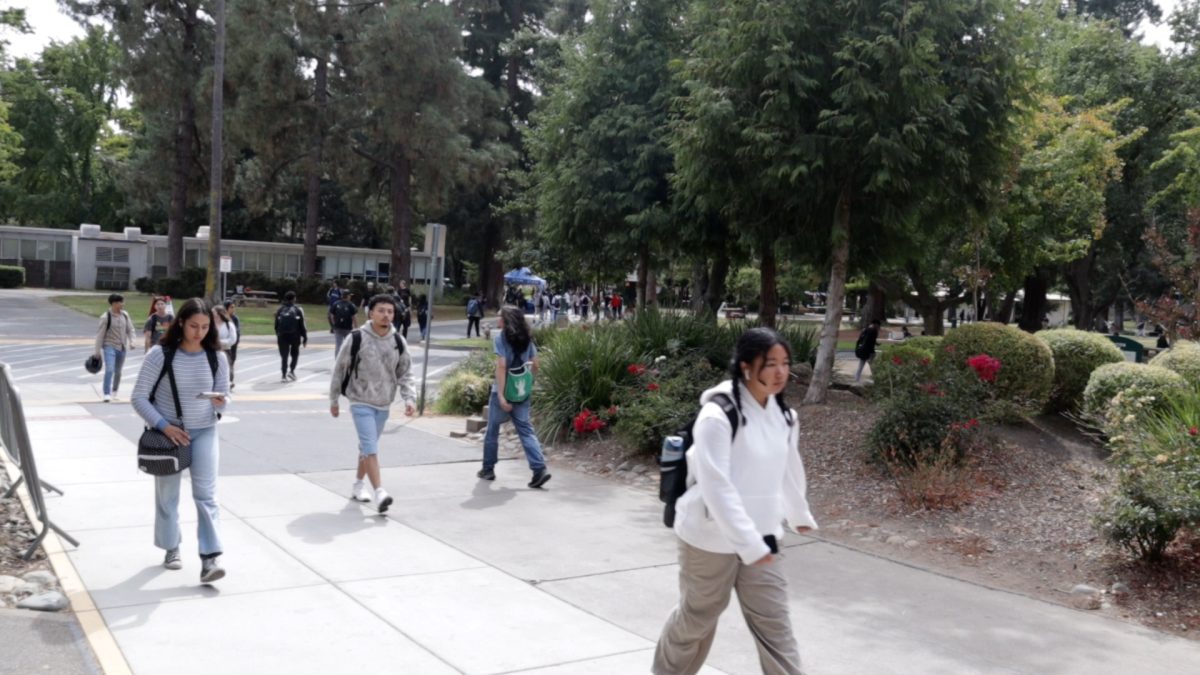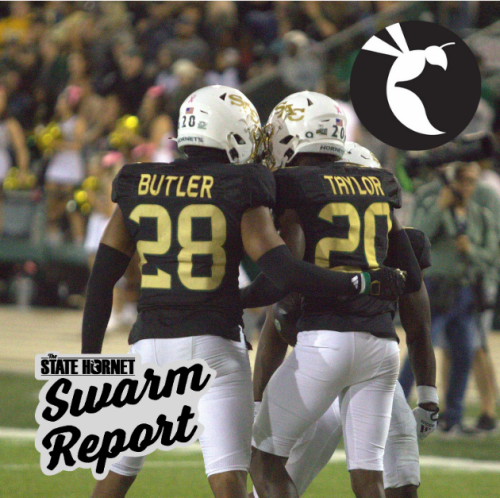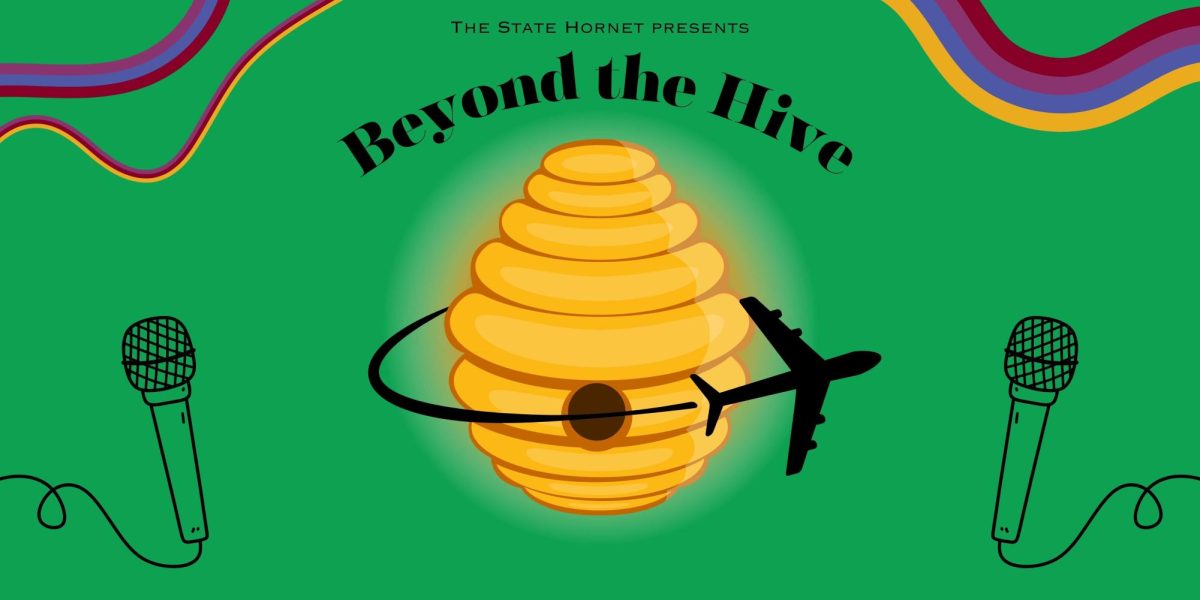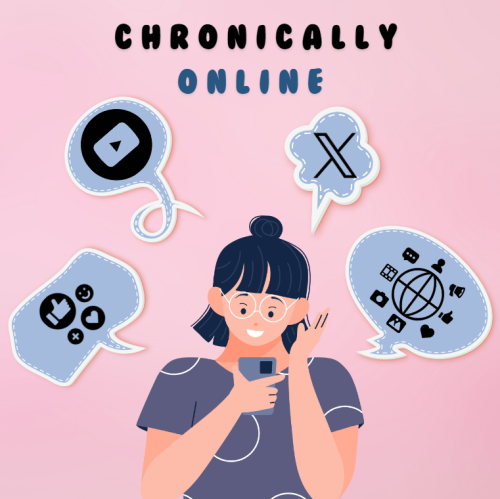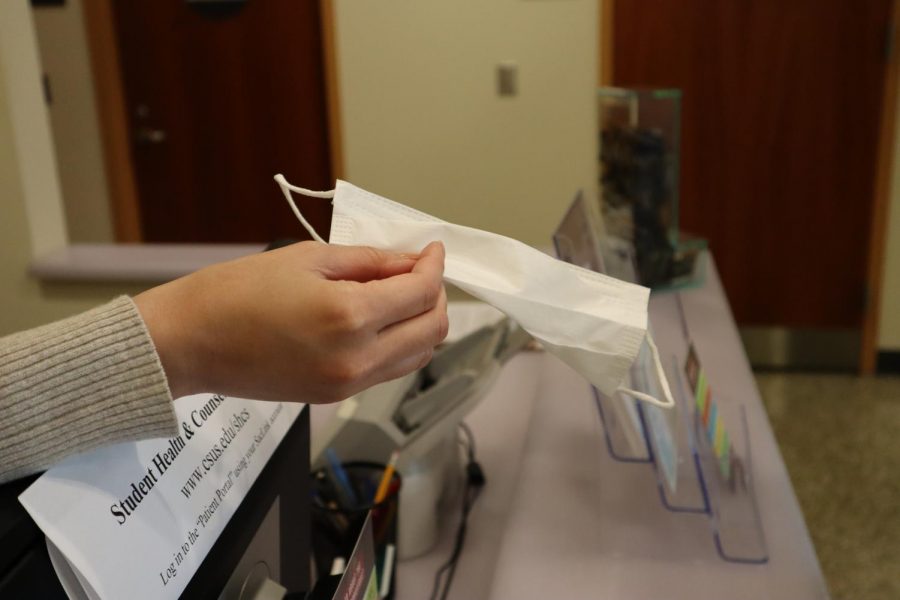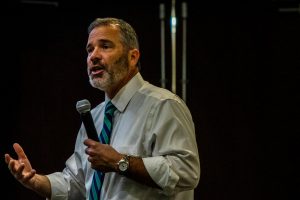‘COVID-19 could be extremely dangerous to me’: Immunocompromised Sac State students speak out
University transitions to online instruction for remainder of semester
A mask is handed to a student by a desk attendant at the Student Health and Counseling Services located in The WELL on Thursday, March 12 at Sac State. The university announced Thursday that most classes will shift to online instruction starting March 16.
March 13, 2020
For some immunocompromised students at Sacramento State, fear of the new coronavirus has caused them to go into self-isolation.
Sac State ended in-person classes and transitioned to online courses for the remainder of the semester starting Friday, March 20, according to a SacSend email.
Ariana Dindzans is a child development major at Sac State. Dindzans has spinal muscular atrophy, a genetic disease.
“In basic terms, it has created a deficiency where my muscles can’t grow or heal themselves,” Dindzans said.
The positive COVID-19 diagnosis and death in Elk Grove concerned Dindzans and her family to the point where they considered evacuating before consulting with her physicians.
“We messaged three of my doctors: my general practitioner, my pulmonologist and my neurologist,” Dindzans said.
All three of her doctors advised her to stay off campus.
RELATED: Sac State to suspend most in-person classes over coronavirus concerns
Dindzans said she is unable to return to campus until it is considered safe by the public health officials.
“A respiratory virus like COVID-19 could be extremely dangerous to me for this reason,” Dindzans said.
Dindzans’ inability to cough makes her more susceptible to developing lung directed illnesses like pneumonia, she said. Even an average cold is a lot for her body to fight.
“I have a lengthy intense routine that involves four different machines and takes maybe an hour or so to complete, and I do this routine multiple times a day when I get sick,” Dindzans said.
Every night Dindzans uses a breathing machine called a C-PAP to ensure she continues breathing while she sleeps, she said.
Dindzans said her professors were understanding and flexible in allowing her to complete assignments from home, prior to the announcement that classes would take place completely online.
Both of her professors are consulting Services to Students With Disabilities to get more advice for handling this situation, Dindzans said.
According to Dindzans, she is used to staying inside a lot and isn’t afraid of getting restless.
“I’ll have my friends via social media, video games, my house plants, our pets and my art supplies to keep my mind active,” Dindzans said. “Mental health is an important aspect to consider when in quarantine, so keeping in touch with your friends and not letting yourself get too bored is important.”
Some students attend classes while immunocompromised while unsure of their diagnosis.
“I have episodes where I’ll vomit uncontrollably and Kaiser cannot figure out what’s wrong with me,” said Sac State psychology major Devon Johnson.
Johnson has had numerous procedures, including two colonoscopies and two endoscopies, to understand the cause of his symptoms.
“They know it is 100% immune system-related and I don’t know the triggers,” Johnson said. “I talked to my gastrointestinal doctor, who completed all of my procedures and he said I am definitely more susceptible to this virus.”
Johnson said this is his last semester and chose not to self-isolate because he didn’t want to risk missing his classes.
“Honestly, it’s very distracting. I can’t even focus on my assignments and hang because I have no idea what’s going to happen,” Johnson said.
Johnson consulted with his doctor who advised him to do what he needed to get through the semester without placing any added stress on himself. Johnson said his doctor suggested he stay home if he had any type of abnormal symptoms.
Some students like sociology major and former State Hornet staffer Tracy Holmes take medication because they have an overactive immune system and need help to suppress it.
“I take meds to actually suppress my immune system which in turn opens me up to things. I have an overactive immune system so suppressing it helps to get my body from attacking healthy cells,” Holmes said.
The protocol listed on the Sac State homepage states students who think they have COVID-19 should inform their professors or manager about missing class and/or work. They should also follow the advice of their healthcare provider regarding the decision to stay at home.
According to the coronavirus FAQ located on the Sac State homepage, if a student suspects they have COVID-19 they should self-isolate at home, contact their healthcare provider and notify them that you suspect COVID-19.



